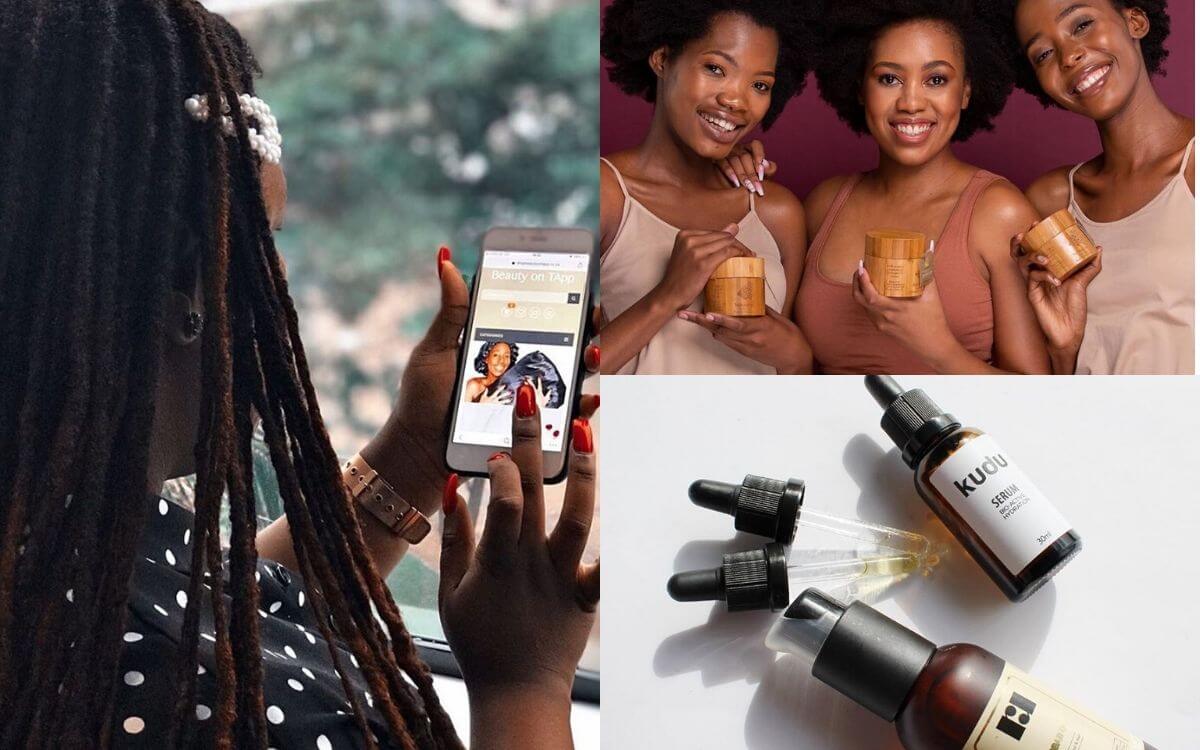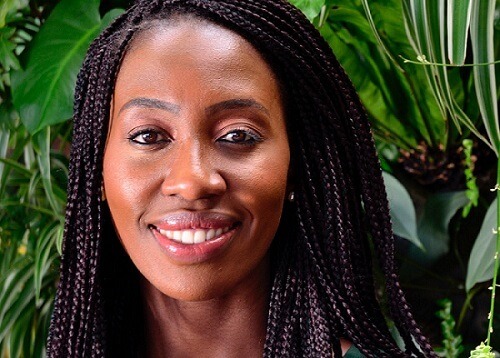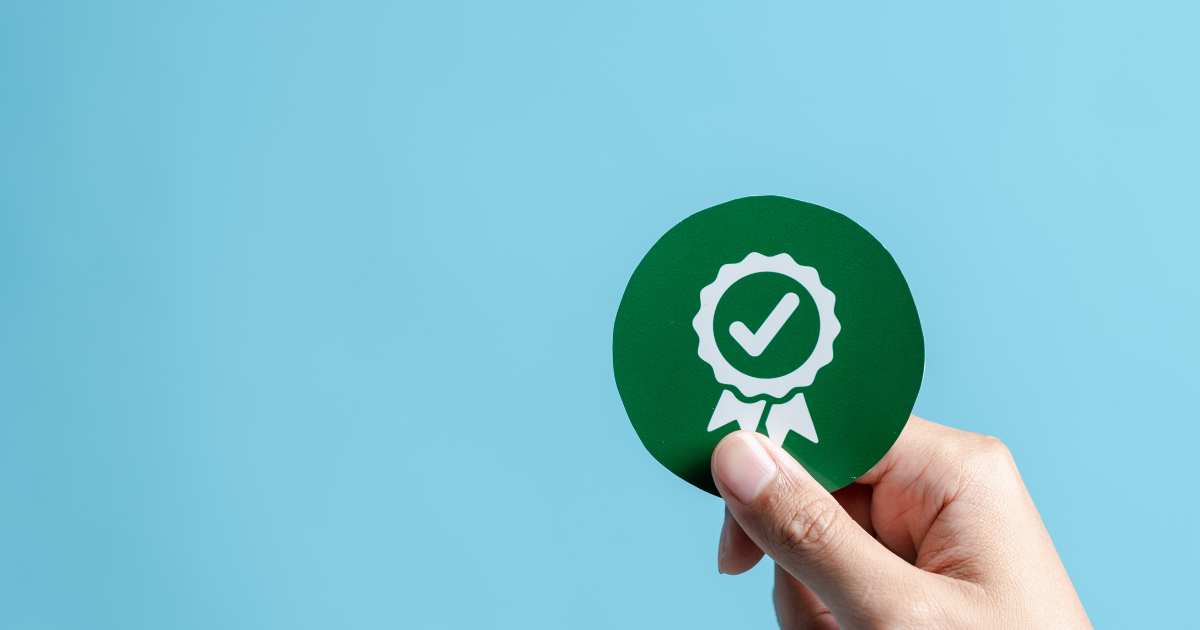
Beauty on TApp launched in 2015 as a mobile application with the aim of helping connect users with beauty salons and beauty product distributors. A year later their e-commerce store, Shop Beauty on TApp, was launched selling jewellery and beauty and lifestyle products.
Today it is a 100% black female-owned beauty distribution business was hailed as one of the top 20 businesses of the future by Forbes Africa Women.
The origin story
Founder Mathebe Molise says the business was fully funded by herself and a former business partner who left before the online store launched.
“At the time it was just the two of us and our outsourced IT partners who maintained the app. As my partner and I had no tech experience it was important to us to find good developers we could trust with our idea and our business.
“We found developers we could trust and whose service was really good. They also helped to provide insight on how the app should work and helped us consistently improve it.”
The business became profitable in 2018.
Molise is a qualified chartered accountant by qualification and is currently the executive assistant to the CEO of an investment bank.
“A lot of what I learn I can bring into my business which I do,” she says.
Molise works on Beauty on TApp after hours and on weekends. “I oversee Beauty on TApp from a strategic perspective and have a team that helps with operations (order processing etc.) and IT which is outsourced.”
Thriving through COVID-19
Molise says despite COVID-19 and the negative impact it has had on the economy, Beauty on TApp’s sales have increased.
“I don’t know what we did different, we continued to engage on our social media pages. We offer more of an educational platform … It makes the store more attractive.
“When people buy stuff, they buy what [they have heard us speak about], people rely on our channels to tell them what to use on skin or hair because now they have to do their own hair,” she explains.
Molise says her strategy has always been to listen to her customers.
“What they want is so important,” she says.
Another effective sales strategy they use is up selling to existing customers. For example customers who buy hair fibre and extensions are provided with additional information on braiding techniques, and have hair spray promoted to them.
Other trends they took advantage of was more people DIY-ing their hair care because of hair salons were closed and also more people started to embrace e-commerce.
“We have had a lot of first time e-commerce users who have actually opted to place orders via WhatsApp Business.
“We are hoping that these are customers who will return once the pandemic is over and hope that this grows South Africa’s e-commerce industry,” says Molise.
As a result they have had to increase their team to four permanent staff with IT and courier services being outsourced.
Molise talks startup costs, expansion plans and the importance of showing value to customers and suppliers.
On inspiration for the app
I actually stumbled on this industry. A friend was getting married and we needed a make-up artist in Cape Town. Being unfamiliar with the area, we didn’t know where to start. At that moment I had this idea that it would be nice to have an app where one could search for beauticians in a specific area.
I told a friend about it and he thought it was a really good idea and we got the ball rolling – we started by finding app developers and writing up a detailed document on exactly how the app should work.
Within four months we had the first version of the app available for download. The app had ‘Find a Service’ or ‘Find a Product’ categories and basically worked as a “beauty Uber”.
It’s really important to think of how you can monetise an app
A few months later several app users asked us why we don’t retail the products on the app i.e. to become a one stop shop for natural hair (which was trending at the time, however very few brands catered for natural hair) and skin care.
From that, Shop Beauty on TApp was born.

On starting out without a business plan
We didn’t have a business plan. We had the details on what we wanted to do and we documented it – we had a whole document on on things such as how each screen must look like, and how businesses would benefit.
It was more about the application itself and how the app needed to run.
I don’t believe a business plan worked for the type of business we started. I think it’s different when you want to apply for funding – then you need a business plan.
It was important for us to find good developers we could trust with our idea and our business
On launching Beauty on TApp as a side hustle
We needed money to fund the app which was a once off payment, [we] then needed to fund monthly maintenance. All of this was self funded.
We only really started generating an income when the online store was launched and we managed to pay monthly costs off of this.
A big lesson from this is the importance of not leaving your job immediately for a startup. Our salaries carried the business for a year before it started generating its own income.
This holds true today, given the economic environment we find ourselves in – if you can, keep your job and try to self-fund, build your business’ track record and then look for funding to scale.
It becomes easier to secure funding if you have a business with a resilient track record.
On set-up costs
The app cost R60,000 and the website was R10,000. We’re continuously reinvesting in the business.
If you can, keep your job and try to self-fund, build your business’ track record and then look for funding to scale
On bootstrapping the business and future funding requirements
The business has been fully funded by me and my mom who provided some equity and remains an investor. However, at the moment the business fully funds itself.
We have a range of payment terms with suppliers that has given us a really efficient working capital structure. Monitoring our working capital cycle and making it as efficient as possible has really helped manage finances.
With apps you need to sell value to people to be able to generate money
The business is at a point where it needs to scale and its likely we will start looking for funding soon. The best option would be equity funding and to partner with a funder that can assist from a technical perspective as well.
We’ve had funding offers in the past, however we didn’t think it was the right time. Right now we know the exact direction we want the store to go in and know what we need funding for.
On the first year
In the first year we generated no income. The tricky part with apps is that you need to sell value to people to be able to generate money.
We had an app that was a directory of beauty salons however beauty salons were hesitant to pay because we had few downloads, but then app users also wanted a big directory to convince them to download the app.
Apps generally don’t generate money in South Africa as users don’t want to pay to download. So it’s really important to think of how you can monetise an app, be it through advertising or other means.
We needed a hook to get more downloads and when we launched the online store more people downloaded the app which then convinced salon owners to register on the app and at that point salon owners were willing to pay to register.
Since then we continued to grow and have seen revenue growth averaging 40% per annum.
- See also: COVID-19 Cash Flow Guide
This is also driven by us adding more brands and different products onto the store which then grows our customer base. So there are a few factors that have driven our growth and we hope that this is a trajectory that we can maintain.
On motivation
I always read about successful entrepreneurs like the founders of Yuppiechef, Tripadvisor and Uber. I read that they have similar stories – in the first three months you don’t make money, you have to think of value offering.
I drew from what I learned from other startups. I had a feeling this is a good business, I knew there’s something here. Even when my co-founder left the business (I had to buy him out), I believed in what I was doing.
Also a lot of people in the tech industry circles told me that my business is ahead of its time. I just had to give it time, it will pay off – and it did pay off, especially now during COVID-19.
On advice for other entrepreneurs
If you were to approach a brand, show them your logistics of the value chain, it’s important to show how you get products to customers and how quickly you get it to them.
We show that our website is safe and reliable, also the value of being on our site.
We also show brands we’ve worked with popular brands and big corporate, we showcase the relationships we have built.
We showcase our quick and efficient service and that we are a high quality brand.
A lot of businesses are going online, but you have to differentiate yourself somehow.
I’ve learned that exceptional customer service can set your business apart from competitors. We try work with brands and service providers that carry this same ethos and it creates a really strong customer service ecosystem where no one drops the ball.
We pride ourselves on getting orders to customers quickly, openly communicating with customers and also engaging our audience on social media often and creating a really strong Beauty on TApp community.
I’ve also learned that being authentic is key and staying true to your core business purpose is important. Beauty on TApp’s main objective is to retail proudly African products and we’ve stuck to that and this has differentiated us in the market.
We’re currently navigating a very unfamiliar environment and finding our footing is really hard. It’s really important for small business to think out of the box and try innovate where they can.
A lot of businesses are going online, but you have to differentiate yourself somehow. Think about what value you are adding.





